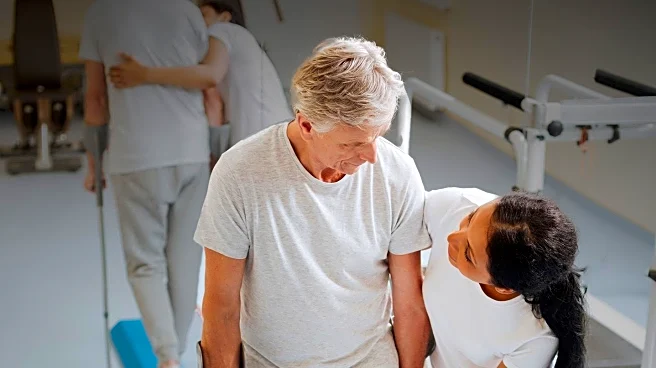What's Happening?
A study led by a Utah engineering professor has demonstrated that gait retraining can effectively reduce arthritis pain and slow cartilage damage. The year-long trial involved participants adjusting their foot angle while walking, which resulted in pain relief comparable to medication. This personalized approach tailored the foot angle adjustment to each individual's natural gait, optimizing knee load reduction. The study, published in The Lancet Rheumatology, marks the first placebo-controlled proof of a biomechanical intervention's effectiveness for osteoarthritis.
Why It's Important?
This research offers a promising alternative to traditional arthritis treatments, which often rely on medication and eventual joint replacement. By reducing knee load through gait retraining, individuals can manage pain and potentially delay the progression of osteoarthritis. This approach could fill a significant treatment gap for younger patients who face decades of pain management before joint replacement becomes necessary. The study's success may lead to broader adoption of biomechanical interventions in clinical settings.
What's Next?
Before clinical deployment, the gait retraining process needs to be streamlined for practical use in physical therapy clinics. Researchers are developing technology to personalize and deliver this intervention using mobile sensors, such as smartphone video and smart shoes. Future studies will focus on refining these methods and expanding access to the intervention.










